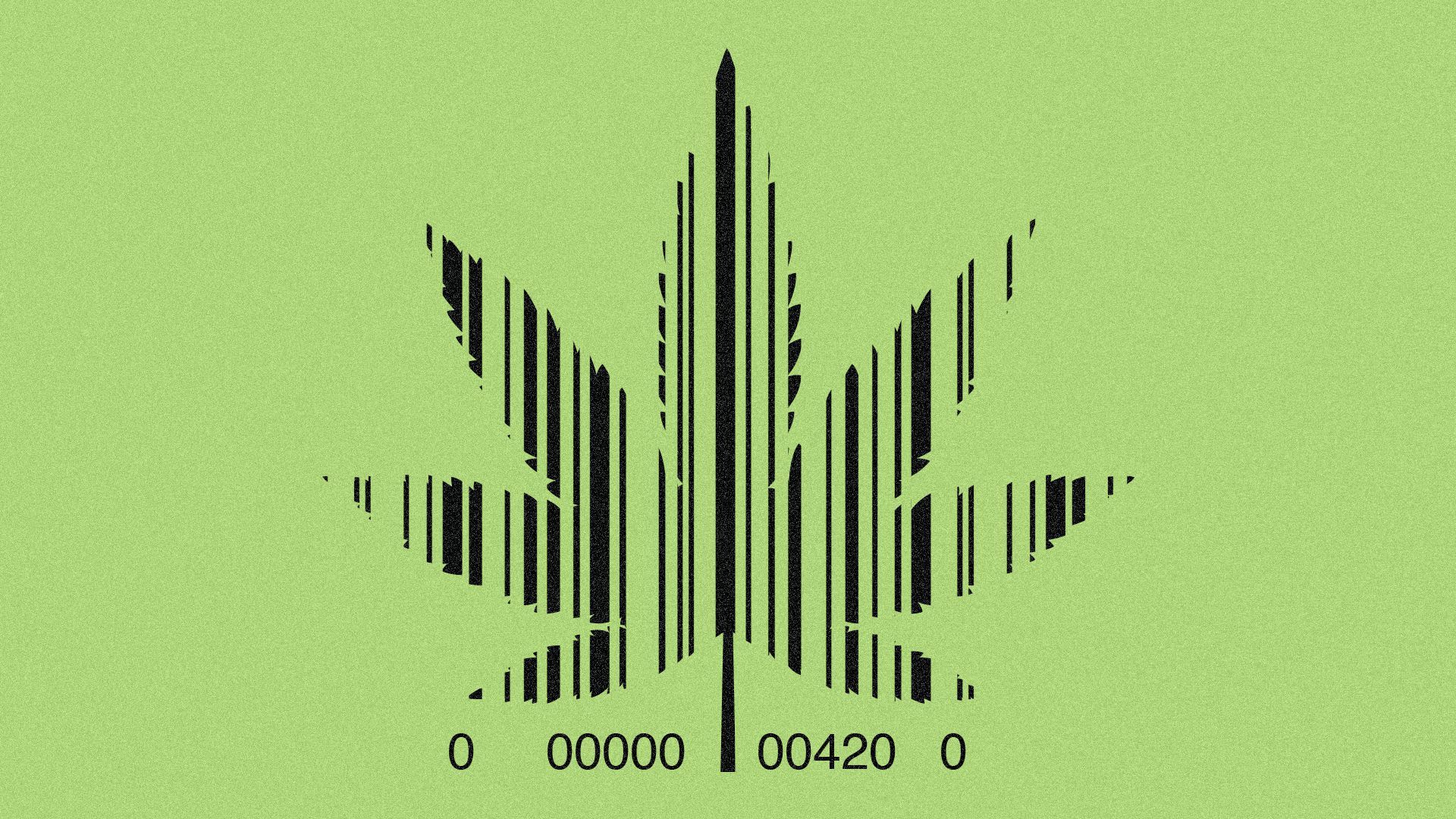Minnesota cities weigh bans and rules on newly legal THC edibles
Add Axios as your preferred source to
see more of our stories on Google.

Illustration: Lindsey Bailey/Axios
Cities across Minnesota are debating how to handle recently legalized THC edibles.
Driving the news: A growing number of cities – including Robbinsdale, Wayzata and Shakopee – have temporarily banned the sale of the products while they weigh their options.
- Others are implementing ordinances to regulate sales.
The big picture: Minnesota's new law allowing the sale of food and drinks containing up to 5mg of hemp-derived THC per serving came as a surprise to many local officials – and even some of the state lawmakers who voted for it.
- The statute, which quietly passed the Legislature this spring, didn't include many rules regulating the industry or funds to enforce the products' dosing and packaging restrictions.
What they're saying: "It quite honestly caught a lot of us off guard," Waite Park police chief Dave Bentrud, whose city is drafting a licensing ordinance, told the Star Tribune. "We really didn't see it coming or have input on anything before it came along."
What they're weighing: Local officials are exploring creating licensing systems, which could include restrictions on who can sell the products and where they're displayed, and zoning regulations that would limit where the products can be purchased, Kyle Hartnett, assistant research manager at the League of Minnesota Cities, told Axios.
- "Most cities are still trying understand what does this mean for us, and what can we do?" he said.
Yes, but: Jason Tarasek, founder of Minnesota Cannabis Law, argues full legalization and regulation of recreational marijuana is the best solution for both businesses and consumers.
- "Until we have a robust seed-to-sale tracking system and licensing system, we won't be able to completely shut down the bad actors," he told Axios.
- In the absence of full legalization, his clients would prefer a uniform statewide approach to licensing, and possibly a special tax to bolster enforcement, to a patchwork of local laws.
Between the lines: The temporary bans aren't expected to have a big impact on availability or the overall market, Tarasek said.
- The state's biggest cities, including Minneapolis and St. Paul, haven't signaled plans for a moratorium. Even if they did, many sales are happening online.
What to watch: Rep. Dave Baker (R-Willmar), a critic of the new law, told Axios he expects state-level proposals ranging from a full reversal to additional statutes on licensing, testing and marketing to be introduced when the Legislature returns in January.
- "It's kind of hard to get the toothpaste back in the tube. But I will tell you that I think there will be a big conversation early in session next year about what is the right step," he said.
- Rep. Heather Edelson (DFL-Edina), who authored the provision, told the Star Tribune she's also looking at drafting statewide licensing framework.
